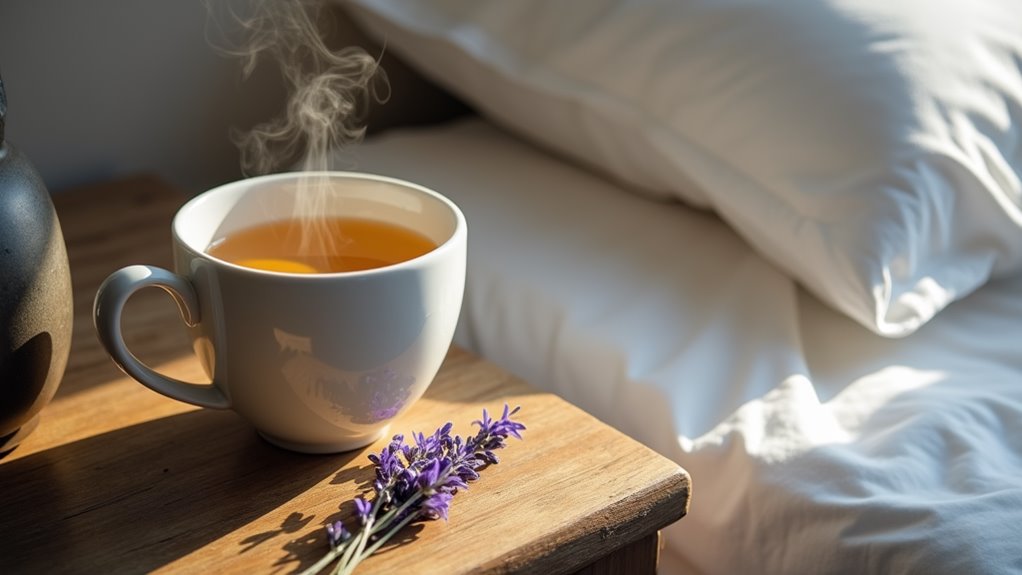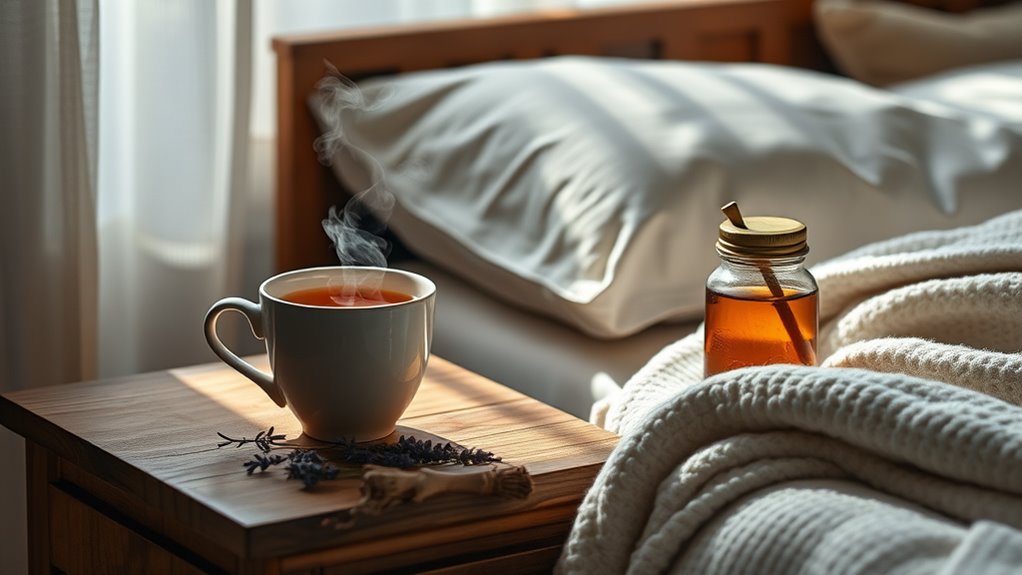Natural Sleep Remedies That Help You Drift Off Peacefully
If you’ve tossed and turned through another restless night, you’re not alone. Nearly 70% of adults struggle with sleep issues, but you don’t need to rely on prescription medications to find relief. Natural sleep remedies have shown promising results in clinical studies, offering gentle yet effective ways to quiet your mind and prepare your body for rest. From ancient herbal wisdom to modern relaxation techniques, these science-backed solutions can transform your nightly routine.
Understanding the Science Behind Natural Sleep
While many people struggle with sleep issues, understanding the biological mechanisms behind natural sleep can help you make informed choices about improving your rest.
Your body relies on circadian rhythms and the hormone melatonin to regulate sleep-wake cycles. When darkness falls, your pineal gland secretes melatonin, signaling it’s time to sleep.
Natural sleep remedies work by supporting these innate processes rather than forcing sleep artificially. They enhance your body’s production of sleep-inducing compounds, reduce stress hormones like cortisol, and help align your internal clock with environmental cues. Incorporating herbal teas containing sleep-promoting herbs can further support these natural processes and improve sleep quality.
Understanding these mechanisms lets you choose remedies that complement your body’s natural sleep architecture.
Essential Oils and Aromatherapy for Better Rest
The practice of using aromatic compounds for sleep aligns perfectly with your body’s natural sleep-inducing mechanisms. Your olfactory system directly influences the limbic system, which regulates emotions and sleep patterns.
| Essential Oil | Sleep Benefit | Usage Method |
|---|---|---|
| Lavender | Reduces anxiety | Diffuser |
| Chamomile | Calms nerves | Pillow spray |
| Valerian | Improves GABA | Massage oil |
| Bergamot | Lowers cortisol | Bath drops |
| Vanilla | Relaxes mind | Reed diffuser |
You’ll find the most success using these oils 30-60 minutes before bedtime. Start with lavender, as it’s backed by the most clinical research and shows consistent results across multiple sleep studies. Incorporating these essential oils into your routine can enhance the quality of sleep and support overall restfulness.
Calming Herbal Teas and Supplements
Natural plant-based teas and supplements offer scientifically-proven alternatives for improving sleep quality without the side effects common to prescription medications. Research demonstrates their effectiveness when consumed 30-60 minutes before bedtime.
-
Chamomile tea contains apigenin, an antioxidant that binds to brain receptors responsible for inducing drowsiness.
-
Valerian root supplements interact with GABA receptors to reduce anxiety and promote deeper sleep.
-
Passionflower tea increases the production of sleep-regulating neurotransmitters while lowering cortisol levels.
-
Studies validate scientific support for traditional remedies, confirming their effectiveness in enhancing sleep quality.
You’ll find these options readily available at health food stores and many supermarkets.
Start with one remedy and monitor your response before combining multiple solutions.
Bedtime Rituals and Sleep Hygiene Practices
Establishing consistent bedtime rituals and sleep hygiene practices can greatly improve your quality of sleep by regulating your body’s circadian rhythm.
Set a fixed bedtime and wake-up schedule, even on weekends. Dim your lights 1-2 hours before bed to boost melatonin production, and keep your bedroom cool, dark, and quiet.
Remove electronic devices from your sleep environment, as blue light disrupts your natural sleep-wake cycle.
Create a relaxing pre-sleep routine that includes activities like gentle stretching, meditation, or reading.
You’ll also sleep better if you avoid large meals, caffeine, and alcohol within 3-4 hours of bedtime.
Relaxation Techniques and Mindfulness Exercises
Beyond maintaining good sleep hygiene, incorporating specific relaxation techniques and mindfulness exercises can help calm an overactive mind before bed.
Research shows these practices effectively reduce sleep latency and improve overall sleep quality.
-
Practice progressive muscle relaxation by tensing and releasing each muscle group for 5-10 seconds, starting from your toes and working up to your face.
-
Try 4-7-8 breathing: inhale for 4 counts, hold for 7, exhale for 8, repeating this cycle 4 times.
-
Engage in body scan meditation, focusing your attention systematically from head to toe while lying in bed.
These evidence-based techniques activate your parasympathetic nervous system, naturally preparing your body for sleep.
Foods That Promote Healthy Sleep Patterns
Your diet plays an essential role in regulating sleep-wake cycles and promoting restful sleep. Foods rich in tryptophan, such as turkey, milk, and bananas, help produce sleep-inducing serotonin.
Magnesium-containing foods like almonds and spinach relax muscles and calm nerves. Incorporate cherries, which naturally boost melatonin production, and complex carbohydrates like oatmeal that trigger insulin response to make tryptophan more available to your brain.
Avoid caffeine after 2 PM, and don’t eat large meals within three hours of bedtime. Choose chamomile tea or kiwi fruit, both proven to improve sleep quality and reduce the time it takes to fall asleep.







